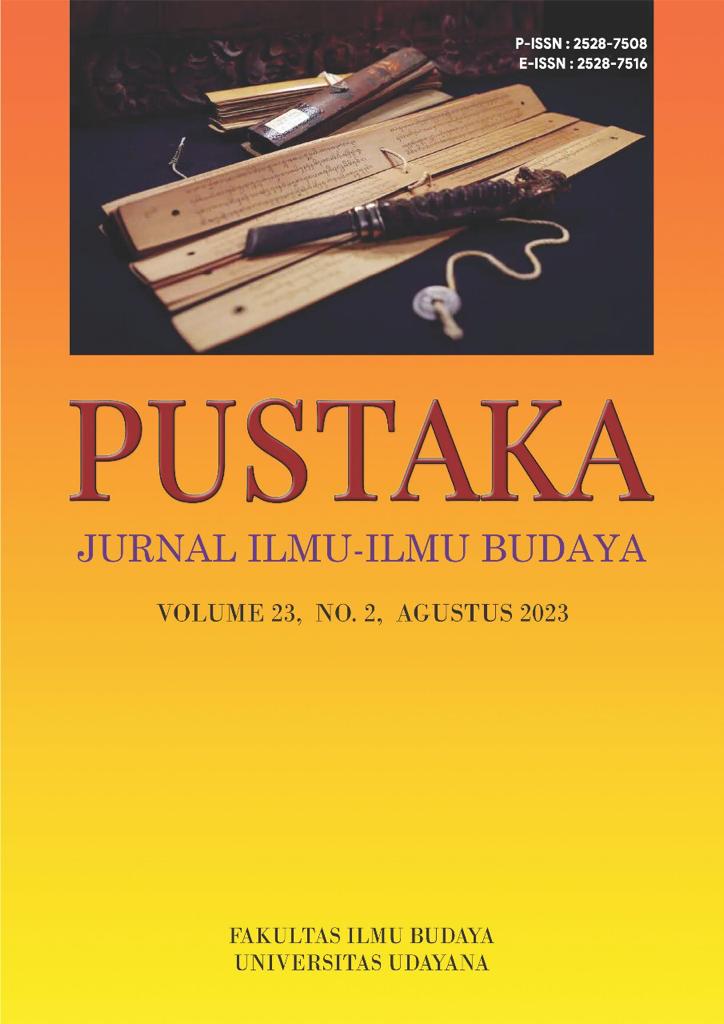Penggunaan dan Makna Verba ‘Berubah’ Dalam Ruigigo Bahasa Jepang Tinjauan Semantik
Abstract
Japanese is a foreign language that has many variations of the lexicon. One of them is the variation of the lexicon in the verb. This article discusses the meaning and use of the verb 'to change' in Japanese ruigigo. This study focuses on sentences used by native Japanese speakers. Data collection was carried out through interviews and note taking techniques. The author conducts interviews directly with Japanese people while recording sentences containing synonyms for the verb 'change' in Japanese. The data were analyzed using a contextual meaning theory approach (Pateda, 2010) by describing them in Japanese sentences. From the data found, in Japanese there are 4 verbs that mean 'change', namely: kawaru, henka suru, hendou suru, and henkou suru. (1) kawaru states changes in terms of (weather, price, facial expression, leaf color, attitude), (2) henka suru states changes in terms of (verb forms, weather, language, post-war conditions, physical/body, patient health), (3) henkou suru stated changes in terms of (gold prices, consumer prices, temperature) and (4) henkou suru stated changes in terms of (stay schedules, regulations, plans, addresses, meeting schedules). The results of the study show that each of these verbs has a different use depending on the context of the situation. In some ways, the verbs kawaru and henka suru can be substituted for each other in the context of changing weather, as well as the verbs kawaru and hendou suru in the context of changing prices
Downloads
References
Gapur, Abdul (2019). ‘Analisis Makna Polisemi Verba ‘Kiru’ (memotong) dalam kalimat Bahasa Jepang’. Medan: Universitas Sumatra Utara.
Nurila (2015). ‘Analisis Makna Verba ‘Dasu’ sebagai Polisemi dalam Bahasa Jepang’. Semarang: Universitas Negeri Semarang.
Dwi Susanti, Y. (2015). ‘Analisis penggunaan verba ‘Narau’ dan ‘Manabu’ dalam kalimat bahasa Jepang’. Manado: Universitas Sam Ratulangi
Japanese Dictionary Takoboto (offline). (2014). Electronic Dictionary Research and Development Group.
Pateda, M. (2010). Semantik Leksikal. Jakarta:Rineka Cipta.
Sentosa, N. (2016), ‘Analisis Semantik Sinonim ‘Tomodachi, Yuujin, dan Nakama’ dalam kalimat Bahasa Jepang. Riau: FKIP Universitas Riau
Sugiyono. (2016). Metode Penelitian Kuantitatif, Kualitatif dan R&D. Bandung.
Sugiyono. (2017). Metode Penelitian Kuantitatif, Kualitatif, dan R&D. Bandung










